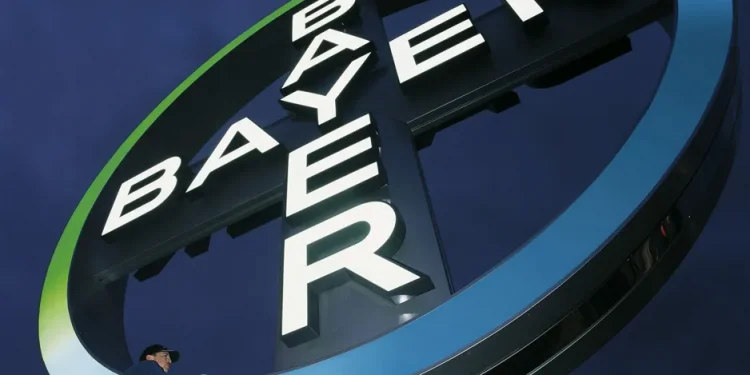In the second quarter of 2024, Bayer Group delivered a solid performance across its diverse business units despite facing significant challenges in the global agricultural market. Bayer’s CEO, Bill Anderson, highlighted the company’s resilience and strategic advancements during the presentation of the half-year financial report, underscoring Bayer’s commitment to both short-term performance and long-term growth.
The Crop Science Division, a key part of Bayer’s portfolio, demonstrated particular resilience, with sales increasing by 1.1% on a currency- and portfolio-adjusted basis, reaching €4.981 billion. This growth was largely driven by strong sales of glyphosate-based herbicides, particularly in North America, despite a broader challenging market environment.
Strategic Growth Amid Market Challenges
Bayer’s Crop Science Division navigated a complex agricultural landscape marked by fluctuating demand and pricing pressures. The division’s growth was supported by a significant 12.4% increase in sales within the Soybean Seed & Traits sector, driven by higher volumes in North America. Additionally, the Insecticides segment posted a notable 6.9% growth, reflecting Bayer’s ability to capitalize on specific market opportunities despite overall softness in the sector.
However, not all areas experienced growth. The Fungicides segment saw a decline of 12.4% due to lower volumes and prices in key regions like North and Latin America, while the Corn Seed & Traits segment also faced a 2.8% decrease, largely due to reduced planting areas in the Americas.
Earnings and Financial Performance
While sales in the Crop Science Division showed resilience, EBITDA before special items decreased by 27.7% to €524 million. This decline was attributed to an unfavorable product mix, though partially offset by a positive currency effect of €49 million.
Overall, Bayer Group’s sales for the quarter rose by 3.1% on a currency- and portfolio-adjusted basis to €11.144 billion. However, earnings before interest, taxes, depreciation, and amortization (EBITDA) before special items fell by 16.5%, reflecting broader market challenges and strategic investments.
Looking Ahead: Innovation and Strategic Focus
Despite these mixed results, Bayer remains optimistic about its prospects for 2024. The company has confirmed its full-year outlook, expecting the Crop Science Division to achieve sales growth at the lower end of its projected range, with an EBITDA margin before special items of 20-22%.
Beyond immediate financial performance, Bayer is also focusing on longer-term strategic initiatives. These include advancing its pharmaceutical pipeline with new drugs and addressing operational efficiencies through the introduction of the Dynamic Shared Ownership (DSO) operating model.
Implications for Investors and the Agricultural Sector
For investors and stakeholders in the agricultural industry, Bayer’s performance underscores the importance of strategic resilience and innovation in navigating market volatility. The company’s ability to offset challenges in certain segments with gains in others, particularly through targeted growth in high-demand products like glyphosate-based herbicides and soybean traits, reflects a balanced approach to growth.
Bayer’s ongoing commitment to addressing longer-term challenges, such as enhancing its product portfolio and streamlining operations, positions the company to continue delivering value despite a challenging environment.
As Bayer moves forward, its focus on sustainability and innovation will likely play a critical role in shaping its future trajectory, offering potential opportunities for investors and partners in the agricultural sector.










